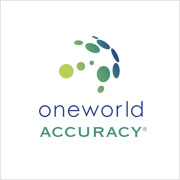
Cordocentesis is performed to determine whether the baby has been exposed to infection or has a genetic problem while in the womb.
Cordocentesis is the process of taking a blood sample of the baby from the umbilical cord between the baby and the mother under ultrasound guidance. Performed after the 20th week, this procedure provides information about the baby's genetic health.
If it is thought that the baby has any chromosomal anomaly or gene mutation, cordocentesis can be applied in pregnancies of 20 or more weeks with the decision of the obstetrician. Cordocentesis, a diagnostic test, gives 99.9% accurate results regarding the health of the baby.
If there is any risk factor in your cordocentesis pregnancy;
If you have even one of these, you can find out whether your baby is genetically healthy with cordocentesis.
A specialist perinatologist takes a blood sample of the baby from the mother's abdomen, using a special needle and ultrasonography.
A series of tests are performed to confirm that the blood sample delivered to the genetic diseases evaluation center is fetal. Then, a short-term cell culture is performed in special media to multiply the cells.
From the cells obtained, the baby's chromosomes can be obtained, as well as DNA for the diagnosis of gene-level diseases. Since this method is applied in advanced gestational weeks, it is important that it is completed in a short time. Numerical evaluation of some chromosomes in a short time is possible with the Fluorescence Insitu Hybridization (FISH) method on the cells obtained.
Cordocentesis is performed after the 20th week of pregnancy. If the appropriate weeks for CVS (chorionic villus biopsy) or AS (amniocentesis) procedures have passed, genetic diagnosis can be made by cordocentesis.
Since the procedure is performed with special needles in the womb, it is thought to be harmful. However, the possibility of pregnancy loss is 1-2%. To avoid the risk of infection, the procedure must be performed by a specialist doctor and in a sterile environment with sterile materials. The possibility of the needle touching or damaging the baby is not possible with today's developing technology.
In the cordocentesis procedure, it is important to make sure that the physician who will perform the procedure is a specialist. In this case, cordocentesis does not cause any harm to the baby and pregnancy.
The difference between cordocentesis and amniocentesis is that for amniocentesis, amniotic fluid is taken at 16 weeks or later. Cord blood for cordocentesis can be taken in pregnancies up to the 20th week. The important point is that the physician performing the procedure must be an expert in his/her job.
You can learn cordocentesis price information from WhatsApp line +90532 746 93 36 and +90312 217 32 26 for fixed line.
Our center mainly provides services in the fields of genetic counseling, cytogenetics, molecular cytogenetics and molecular genetics. The problems of our patients who apply to our center, which are thought to have genetic causes, are helped by using up-to-date information and technology.
Chromosome disorders form an important category of genetic disease. Cytogenetic tests examine the number and morphology of chromosomes.
Diseases that cause deterioration of human health and change the living order are diagnosed and detected through molecular tests.
It is a discipline that expands the scope and increases the diagnostic value of routine chromosome analysis with the combined use of molecular biology and cytogenetic techniques.
Diagnosis of cancer at an early stage greatly affects the success of cancer treatment. Many cancer tests are performed in our genetic diagnosis center.



We offer genetic analysis and clinical consultancy services at the highest technology and quality standards, using the most up-to-date scientific knowledge, diagnosis and treatment methods.